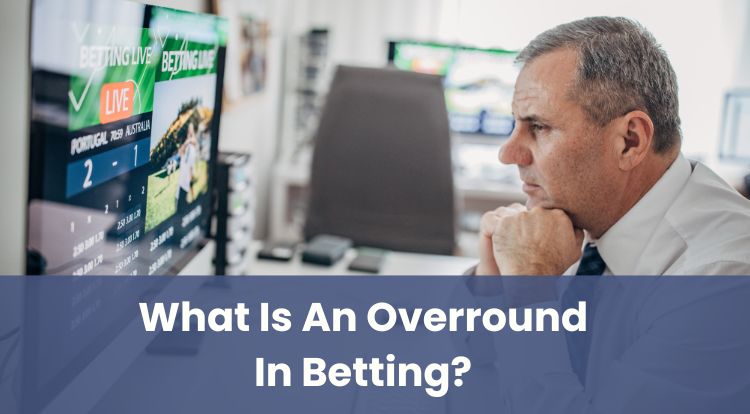
Informed betting involves understanding how odds are calculated and the factors behind them. One key concept to know is "overround." But what does it mean, and why should it matter to you?
Overround is the profit margin that bookmakers include in the odds they offer. It represents the percentage by which the total odds for all possible outcomes exceed 100%, ensuring that the bookmaker maintains a profit in the long run. By understanding overround, you can better grasp how bookmakers set their odds and evaluate the fairness of the market.
It’s important to remember that informed decision-making supports responsible gambling. Understanding betting options like overround can give you a clearer view of the betting process. Let’s dive deeper into overround and discuss how it might influence your betting approach.
What Does Overround Mean In Betting?
In any betting market, each possible outcome has odds attached to it, which are calculated to reflect the probability of that event occurring.
The overround represents the margin that bookmakers incorporate into the odds to ensure they have a small edge. This margin allows bookmakers to cover their operational costs and still maintain a potential profit, regardless of the outcome of the event.
When you add up the implied probabilities of all the possible outcomes in a betting market, you’ll typically find that the total exceeds 100%. The difference over 100% is the overround, which is essentially the bookmaker’s advantage built into the odds.
Understanding the overround can be useful because it shows you how much you might be paying above the "fair" odds. The higher the overround, the greater the bookmaker’s margin, meaning you are paying more for your bet relative to the true probability of the event.
Grasping concepts like overround can help enhance your understanding of the market and potentially improve your overall experience.
How Is The Overround Calculated In Betting?
Calculating the overround in betting is a simple process. It starts by converting the odds of each possible outcome into implied probabilities. This helps to understand the likelihood of each outcome, according to the bookmaker.
To convert decimal odds to implied probability, use the following formula:
Implied Probability % = (1 ÷ Decimal Odds) × 100.
Once you have the implied probabilities, add them together. In a perfectly balanced market, without any overround, the total would equal 100%. However, in most cases, the sum will exceed 100%.
The difference above 100% represents the overround. For example, if the total is 105%, the overround is 5%. This percentage reflects the bookmaker’s margin on the market.
Overround Betting Example
Let’s use a simple example to explain the concept of overround in betting. Consider a football match where the bookmaker offers the following odds: Team A to win at 2.00, Team B to win at 3.00, and a draw at 4.00.
First, you convert these odds into implied probabilities. For Team A, the probability is calculated as (1 ÷ 2.00) × 100 = 50%. For Team B, it’s (1 ÷ 3.00) × 100 = 33.33%. For a draw, the probability is (1 ÷ 4.00) × 100 = 25%.
When you add these probabilities together, you get 50% + 33.33% + 25% = 108.33%. This means the overround is 8.33%.
Are Overround and Hold The Same?
In betting, you might encounter terms like "overround" and "hold." While they are related, they represent different aspects.
The overround refers to the margin that bookmakers include in their odds. It indicates the bookmaker’s built-in advantage in a particular market.
The term "hold," however, refers to the percentage of the total money wagered that the bookmaker retains after all bets are settled on a specific event or series of events.
While the overround is calculated before the event, the hold is determined after the event has concluded. The hold percentage can vary depending on the outcomes of the bets and the amounts staked.
Understanding both overround and hold can help you gain a better understanding of how bookmakers work. This knowledge may assist you in making more informed betting choices.
It’s important to stay informed, as understanding these terms can help contribute to a more enjoyable and responsible gambling experience. Always remember to keep gambling a fun and responsible activity.
**The information provided in this blog is intended for educational purposes and should not be construed as betting advice or a guarantee of success. Always gamble responsibly.
*All values (Bet Levels, Maximum Wins etc.) mentioned in relation to these games are subject to change at any time. Game features mentioned may not be available in some jurisdictions.
